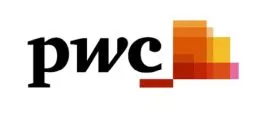On September 26, 2021, the 20th German Bundestag of the Federal Republic of Germany was elected. The centre-left party, the Social Democratic Party of Germany (SPD) emerged as the strongest party and quickly begun discussions to form a new coalition government for the 2021-2025 legislative period. The SPD had already been the junior partner in the previous coalition with the CDU/CSU (since 2013) under the Merkel chancellorship.
The SPD's Olaf Scholz will replace Merkel as chancellor. Scholz had previously been the Finance Minister under the most recent cabinet and thus he marked the "continuity candidate" amongst party leaders in the 2021 Bundestag elections. The post-election exploratory talks to form a new government resulted in coalition negotiations in which the SPD approached the centre-left green party, Bündnis 90/Die Grünen (the Greens) and the centre-right Free Democrats (FDP).
The negotiations ended on November 24, 2021 and culminated with the presentation of the Coalition Agreement1. In German politics, a coalition agreement serves to publicly present consensus on the parties' most important shared goals and objectives under the new cabinet. In the following sections below, we provide a short overview of key points that are relevant for financial services market participants. Sustainable finance and climate change priorities set in the Coalition Agreement are discussed in our separate coverage.
The Coalition Agreement and key themes - a commitment to the EU
The Coalition Agreement which was unveiled bears the title "Dare for more progress - an alliance for freedom, justice and sustainability". The new incoming cabinet, in addition to advancing efforts to combat climate change (see our separate coverage on this), plans to focus on reforms to improve social justice, digital transformation, security and the economic competitiveness of Germany. Financial services and market participants are set to play a key role in delivering change over the next legislative period. Crucially, while the Coalition Agreement presents reforms for Germany, the points detailed therein will likely be of relevance for policymakers across the EU-27's national capitals as well as for EU-policymakers in Brussels, Paris and Frankfurt.
As an overarching message, the Coalition Agreement is dedicatedly pro-European and committed to completing a number of legislative and institutional reforms that have been advanced or been proposed at the EU-level. Specifically, the new German government is committed to the EU's Conference on the Future of Europe, an important means of advancing dialogue on EU constitutional reform. The German government is also supportive of giving the European Parliament the "right of initiative", a commitment to a single electoral system and transnational lists for European Parliament elections, a push for increased transparency in European Council decision making, and equally strengthening consideration of small-to-medium sized enterprises' (i.e., reflective of the importance of the German Mittelstand) specifics in EU rulemaking.
Crucially, this Coalition Agreement proposes that the new incoming cabinet hold itself to pursuing a faster pace and possibly some more ambitious aims when delivering change both in Germany as well as across the EU-27. While this is welcome, it is possibly also reflective of an incoming government that is seeking to drive the bounce-back from the impacts of the COVID-19 pandemic which put a pause to a number of reforms in the pipeline or already in various stages of delivery.
The EU´s Banking Union, Capital Markets Union projects and EU Financial Market Regulatory reform
The Coalition Agreement's aims are clear in the need to complete the EU's Banking Union. Completion is necessary in order to strengthen the EU's Single Market and thus the European economy but therefore also the global competitiveness of German and European financial services firms and the counterparties, clients and communities they engage with. The following measures are intended to contribute to this endeavour:
- The 2021 Bundestag election was expected to break the deadlock
on Germany's stance on the proposed "third pillar" to
Banking Union i.e., the European Deposit Insurance Scheme (EDIS).
Already during late 2019 and 2020, statements by Olaf Scholz, as
then Finance Minister sought to break the contentious discussion on
EDIS and propose compromise solutions that would be acceptable to
the domestic electorate without derailing the EU's progress.
The Compromise Agreement now cements Germany's compromise
position on EDIS. While the new government still remains cautious
on any form of mutual risk sharing, the compromise offered foresees
a European reinsurance mechanism for national deposit guarantee
schemes. Contributions are to be differentiated according to risk
and this is subject to three key preconditions being met:
- Risk exposures in bank balance sheets must be subject to further reduction
- notably with respect to an overreliance on government bonds;
- The EU's Bank Recovery and Resolution Regime (BRRD II and SRM II) must be strengthened further;
- The Institutional Protection Schemes (IPS) of German savings and cooperative banks must be safeguarded and unaffected as part of delivery of the compromise position;
- The Coalition Agreement is supportive of implementing Basel III/IV's core requirements as applied in the EU through CRR III/CRD VI, into German law. In this context, the Coalition Agreement highlights the need to reduce competitive disadvantages faced by small banks and proposes to push for more proportionate risk-based supervision. Similarly, the German government plans to ensure that investment-conditions are not hampered by the implementation of the new prudential regulatory standards as well as the continued (systemic) impact of extraordinary support and/or relief measures that were put in place to support the economy in light of COVID-19;
- While no concrete proposals are put forward on how to complete Capital Markets Union - and this may be partly due to the EU Commission's revised regulatory reforms having been published at the same time the Coalition Agreement was being finalized - there is broad support for efforts at the EU and national level to do so. Specifically, the Coalition Agreement does however point to workstreams on the MiFIR/MiFID II review and a need to strengthen market transparency including with respect to high-frequency trading as well as reducing position limits for (agricultural) commodities; and
- On Solvency II, the Coalition Agreement will focus on how to embed climate risk into evidence based and risk adjusted prudential capital requirements in a manner that facilitates also liability-driven investments. Germany will push for a greater ability to apply risk-based adjusted proportionate regulatory and supervisory requirements to non-complex insurance firms and pension providers.
To view the full article please click here.
Footnotes
1 The full text of the Coalition Agreement is available here.
The content of this article is intended to provide a general guide to the subject matter. Specialist advice should be sought about your specific circumstances.

